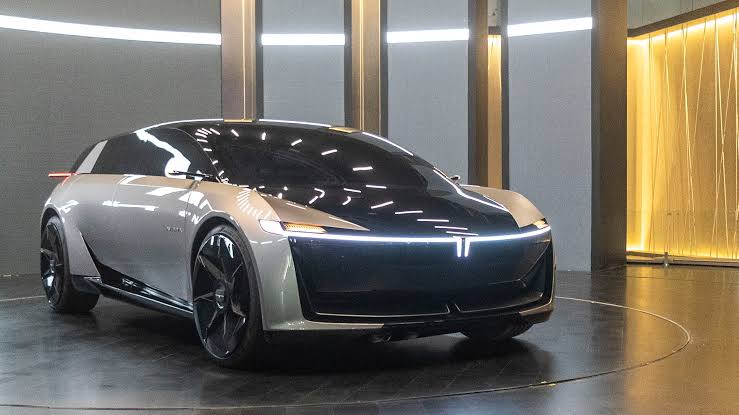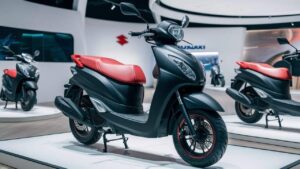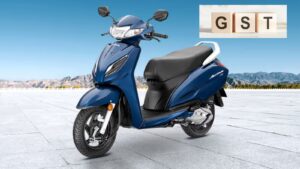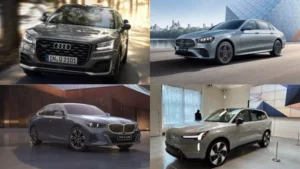Tata Motors to Launch Fully Electric Tata Avinya, Aimed at Competing with Tesla Model 3

Tata Motors to Launch Fully Electric Tata Avinya, Aimed at Competing with Tesla Model 3
Avinya features cutting-edge materials, high-performance electronic components, and unique energy management techniques to maximize efficiency within the premium electric vehicle sector.
Tata Motors is preparing to introduce its fully electric SUV, the Tata Avinya, with an estimated price of approximately Rs 25 lakh, according to sources familiar with the company’s intentions who requested to remain anonymous.
This five-seater SUV, developed by Tata Passenger Electric Mobility Limited (TPEML), was initially revealed in April 2022 and represents the launch of Tata’s “Gen 3 architecture.”
The aforementioned sources indicate that the company, which is currently the largest manufacturer of passenger electric vehicles in India, is positioning its Avinya model as a direct rival to Tesla’s Model 3. The Model 3, anticipated to be priced above Rs 30 lakh in India, is still the most economical offering from the company founded by Elon Musk. Reports suggest that Tesla is preparing to enter the Indian market this year, with sales potentially starting as early as April. Initially, the company is expected to import vehicles directly from its Gigafactory located in Berlin-Brandenburg.
This development represents a notable shift in policy for the Indian government, which had previously mandated that Tesla establish manufacturing operations in India to avoid high import tariffs. However, it appears that India is now poised to offer substantial duty concessions to U.S. manufacturers opting to export to India from international locations, with ongoing discussions between the two nations on this matter.
Tata Motors, designed in India for a worldwide market, asserts that the Avinya’s framework emphasizes superior structural safety, coupled with enhanced waterproofing and dust resistance, making it ideal for various terrains, especially those found in India. The company also highlights that the battery technology allows for ultra-fast charging, achieving a minimum range of 500 km in less than 30 minutes.
According to Tata Motors, the Avinya features cutting-edge materials, high-performance electronic components, and unique energy management techniques to maximize efficiency within the premium electric vehicle sector.
Avinya, according to the company, utilizes advanced materials, high-performance electronic components, and unique energy management techniques to enhance efficiency within the premium electric vehicle market. In May of the previous year, Moneycontrol reported, referencing informed sources, that Tata Motors Ltd is in the process of separating its commercial vehicle (CV) and passenger vehicle (PV) divisions. Additionally, the company is contemplating a potential merger of its electric vehicle operations—currently a subsidiary—into the PV unit following the completion of the demerger process.
In recent years, Tata Motors has adopted unique growth strategies for its Commercial Vehicles (CV), Passenger Vehicles (PV+EV), and Jaguar Land Rover (JLR) divisions. Since 2021, these segments have been operating autonomously under their individual CEOs, as stated by Tata Motors.
Although there are few synergies between the commercial and passenger vehicle sectors, the company identifies considerable synergies among petrol, diesel, and electric passenger vehicles, along with JLR, especially in domains like autonomous driving and vehicle software. The anticipated demerger is expected to enhance these collaborative efforts.
A burgeoning market
Elon Musk has consistently shown a keen interest in penetrating the Indian market due to its significant growth prospects. The Electric Vehicle (EV) sector in India is poised for swift development, driven by government incentives and advancements in technology.
India has established ambitious goals for EV integration: by 2030, it aims for 30% of private car sales, 70% of commercial vehicle sales, 40% of bus sales, and 80% of two-wheeler and three-wheeler sales to be electric. This initiative aims to achieve a total of 80 million EVs on Indian roads by the decade’s end. Furthermore, India is striving for comprehensive domestic EV manufacturing as part of the ‘Make in India’ initiative.
“We have indicated that the first vehicle under the Avinya series is expected in FY27. We’ve not indicated anything on the pricing of the vehicle. We typically talk about it at the launch,” said a Tata Spokesperson as reported by Moneycontrol.com.












